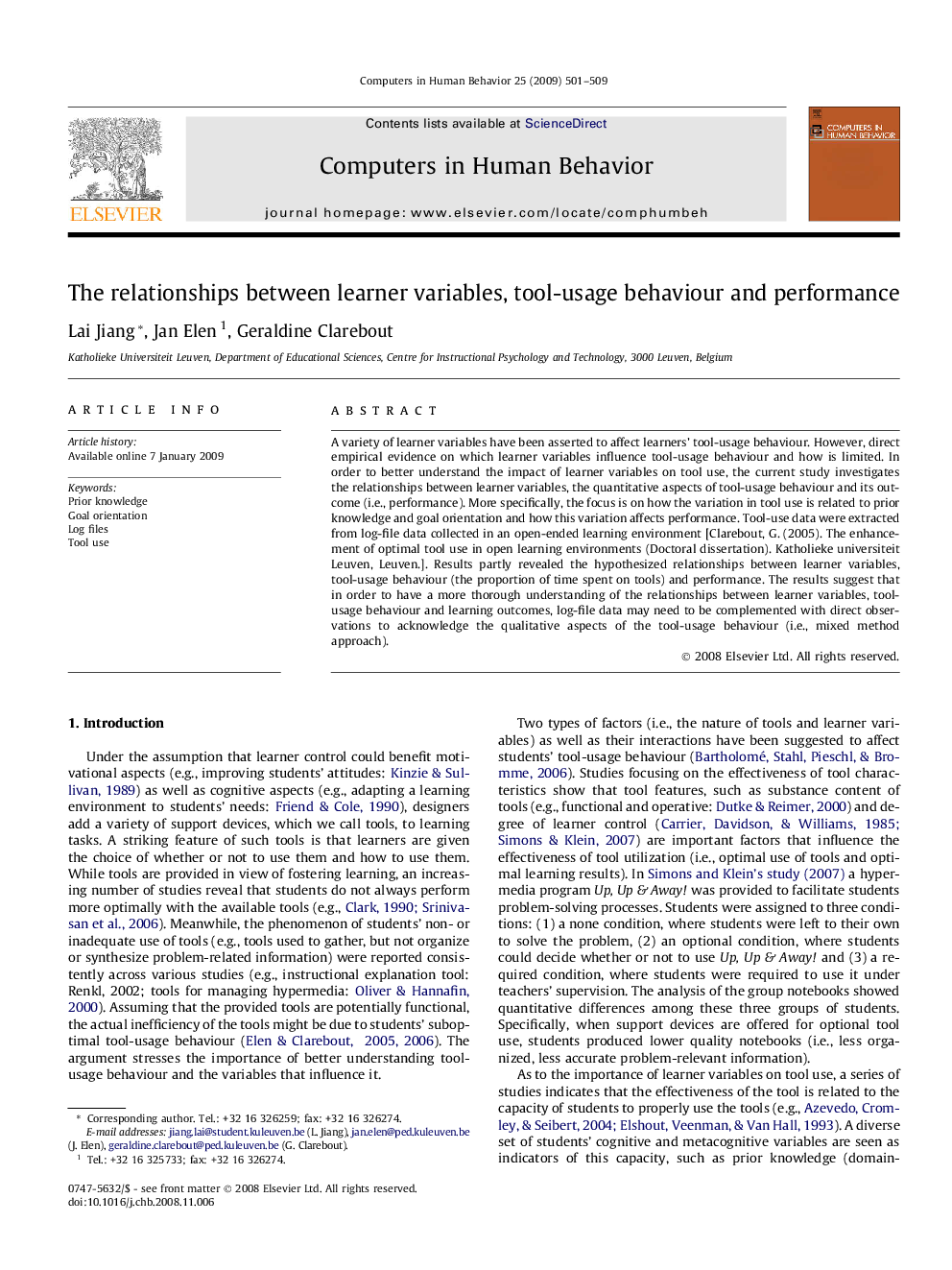| Article ID | Journal | Published Year | Pages | File Type |
|---|---|---|---|---|
| 352280 | Computers in Human Behavior | 2009 | 9 Pages |
A variety of learner variables have been asserted to affect learners’ tool-usage behaviour. However, direct empirical evidence on which learner variables influence tool-usage behaviour and how is limited. In order to better understand the impact of learner variables on tool use, the current study investigates the relationships between learner variables, the quantitative aspects of tool-usage behaviour and its outcome (i.e., performance). More specifically, the focus is on how the variation in tool use is related to prior knowledge and goal orientation and how this variation affects performance. Tool-use data were extracted from log-file data collected in an open-ended learning environment [Clarebout, G. (2005). The enhancement of optimal tool use in open learning environments (Doctoral dissertation). Katholieke universiteit Leuven, Leuven.]. Results partly revealed the hypothesized relationships between learner variables, tool-usage behaviour (the proportion of time spent on tools) and performance. The results suggest that in order to have a more thorough understanding of the relationships between learner variables, tool-usage behaviour and learning outcomes, log-file data may need to be complemented with direct observations to acknowledge the qualitative aspects of the tool-usage behaviour (i.e., mixed method approach).
